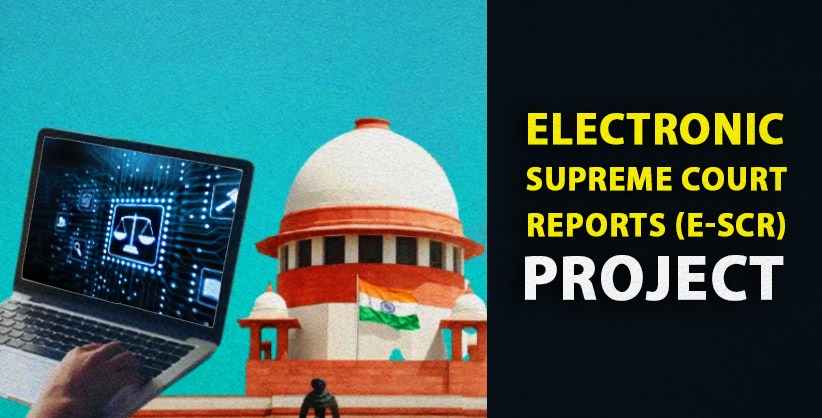Electronic Supreme Court Reports (e-SCR) project
The Chief Justice of India (CJI), D Y Chandrachudh, has announced the launch of the electronic Supreme Court Reports (e-SCR) project, which aims to provide free access to around 34,000 judgments of the apex court to lawyers, law students, and the general public. These judgments will be available on the Supreme Court’s website, mobile app, and on the National Judicial Data Grid’s judgment portal. The e-SCR project is part of the Indian judiciary’s efforts towards digitization and aims to bring positive change for all stakeholders in the justice system, including litigants, members of the Bar, and judicial academies.
Digital Repository of Judgments
To create the digital repository of judgments, the Judges’ Library and Editorial Section worked tirelessly to digitize and scan the Supreme Court Reports (SCR) from 1950 to 2017 and preserve them in digital form as PDFs. This process assisted the Registry in creating a digital repository of the reported judgments in soft form.
Search Engine and Its Features
The Supreme Court has developed a search engine with the help of the National Informatics Centre (NIC), which uses elastic search techniques in the database of e-SCR. The search facility in e-SCR provides several options, including free text search, search within search, case type and case year search, judge search, year and volume search, and bench strength search.
Neutral Citations to be Introduced
In addition to the e-SCR project, the CJI also announced that neutral citations will be introduced in the Supreme Court. Neutral citations are standardized legal citations that do not identify the publisher of a legal document, allowing for impartial and objective referencing. Delhi and Kerala High Courts already use neutral citations. A committee comprising three judges has been constituted to work on the process of introducing neutral citations in the Supreme Court.
Benefits for Stakeholders in Justice System
The e-SCR project and the introduction of neutral citations are expected to bring several benefits to stakeholders in the justice system. Lawyers, law students, and the general public will have easy access to the judgments of the apex court, which will help them in their research and understanding of legal matters. The digital repository of judgments will also make it easier for legal professionals to search for and access relevant judgments, saving time and effort.
Availability of Judgments Online
With the launch of the e-SCR project, all judgments of the Supreme Court will be made available online within 24 hours. These judgments will be accessible on the Supreme Court’s mobile app and on the National Judicial Data Grid’s judgment portal.
Deadline for Head-Noted Judgments of 2022
The CJI has set a deadline of February 15th for the head-noted judgments of 2022 to be made available online. Head-noted judgments are those that have been selected for publication in the official law report, the Supreme Court Reports. By making these judgments available online, the Supreme Court aims to provide greater transparency and accessibility to its work and decisions.
The launch of the e-SCR project and the introduction of neutral citations in the Supreme Court mark significant steps towards the digitalization of the Indian judiciary. These initiatives will provide easy access to the judgments of the apex court and facilitate research and understanding of legal matters. The digital repository of judgments will also make it easier for legal professionals to search and access relevant judgments, saving time and effort. The deadline for head-noted judgments of 2022 to be made available online will provide greater transparency and accessibility to the Supreme Court’s work and decisions. Overall, these initiatives are expected to bring positive change for all stakeholders in the justice
Month: Current Affairs - January, 2023
Category: Legal & Constitution Current Affairs







